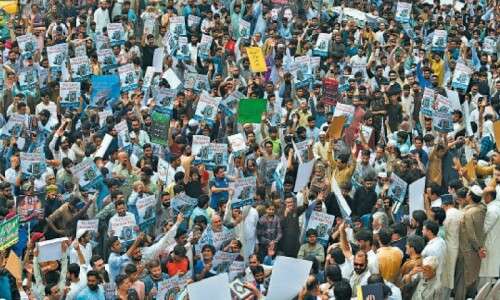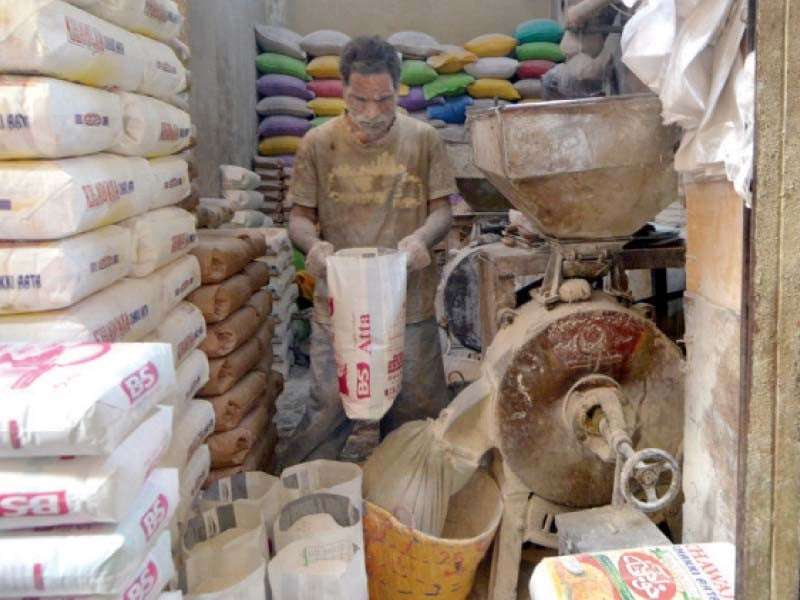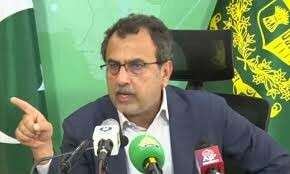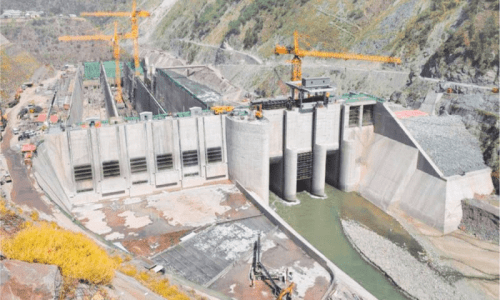Introduction: Political Divide and Economic Consequences
The political climate in Pakistan has become increasingly polarized, with tensions between the ruling government and the opposition growing ever more intense. This divide is not only affecting the country’s political stability but is also having a profound negative impact on its economic recovery. While the primary opposition party, Pakistan Tehreek-e-Insaf (PTI), and the government continue to exchange accusations and blame, the consequences of this political unrest are being felt across the nation, particularly in the business sector. The situation is further complicated by a crisis of confidence among local businesses and foreign investors, many of whom have lost hope that the political deadlock will ever end.
Political Polarization and Business Confidence
The impact of the political crisis on the economy is undeniable. Mohammad Jawed Bilwani, President of the Karachi Chamber of Commerce and Industry, highlights how political unrest has eroded the confidence of local business owners and foreign investors alike. In particular, business owners are now questioning whether Pakistan can return to a path of stable economic growth amidst such turmoil. The inability of political leaders to resolve their differences is leaving the private sector in a state of uncertainty, with far-reaching consequences for the country’s economy.
Internet Disruptions and the Cost to Pakistan’s IT Sector
The economic toll of political instability extends beyond traditional sectors like manufacturing and trade. One area where the effects are particularly pronounced is in Pakistan’s growing IT sector. According to Sajjad Mustafa Syed, Chairman of the Pakistan Software Houses Association, even a one-hour internet disruption can lead to significant losses. Syed notes that such interruptions result in a loss of $1 million for the entire sector. While a short disruption might seem insignificant to the average person, it can have a disastrous ripple effect on businesses that rely on online services. For example, any delays in services like banking, stock market transactions, or airport operations could result in a loss of confidence from international clients and investors.
The Economic Impact of Political Turmoil
The Role of Economics in Politics
In times of normalcy, it is the economy that shapes political decisions. However, during deep-rooted crises, such as the one Pakistan currently faces, politics takes precedence over economics. The escalating political divide has begun to dominate national discussions, overshadowing critical economic issues that require immediate attention. While the government insists that economic recovery is the priority, the ongoing political wrangling is only making the situation worse.
The Cost of Protests and Political Instability
Protests, insurgencies, and the suppression of dissent are significant drivers of economic disruption. The cost to the economy due to political protests is staggering. According to the Ministry of Interior, PTI’s recent protests have resulted in indirect losses of Rs192 billion per day. This financial burden is compounded by the ongoing struggle against terrorism, which has already cost Pakistan $130 billion and claimed the lives of around 80,000 citizens. In response to the growing instability, the government has been taking steps to strengthen its security forces, including the creation of a new anti-riot force equipped with modern tools and trained personnel.
Economic Slowdown and Fiscal Challenges
The ongoing political crisis has led to a slowdown in economic activity. This, coupled with high energy costs and reduced consumption, has placed additional strain on the country’s economy. Pakistan’s revenue collection has also fallen short of targets. The Federal Board of Revenue (FBR) had set a tax target of Rs4.64 trillion, but by the end of November, it had only collected Rs4.28 trillion, falling short by Rs356 billion. Additionally, the Public Sector Development Programme (PSDP) has seen a significant reduction in utilization, with only 8.4% of the budget being spent as of November 20.
Energy Crisis and Inflation
Pakistan’s energy crisis is another contributing factor to the economic downturn. With sluggish economic growth and rising poverty levels, energy consumption has dropped, further exacerbating the situation. In light of these challenges, Pakistan is in discussions with Qatar to postpone the delivery of 10 liquefied natural gas (LNG) cargoes next year. Inflation, meanwhile, remains a serious issue, with the cost of living continuing to rise for many citizens. Despite these challenges, inflation has dipped to a 78-month low of 4.9% in November, which is seen as a small silver lining amidst the ongoing economic struggles.
The Path Forward: Calls for Political Cooperation
The Need for Political Unity
The mounting economic crises have led to calls for political unity in Pakistan. Citizens and business leaders alike are urging the ruling government and the opposition to set aside their differences for the good of the country. The current situation, characterized by constant political bickering, is seen as detrimental to the national interest. There is widespread recognition that a more cooperative approach is needed to resolve the country’s pressing issues, especially economic ones.
Efforts Toward Political Consensus
In an attempt to bring the political factions together, the Pakistan Peoples Party (PPP) has initiated talks with other political parties, including PTI, to explore areas of consensus. The government’s efforts to label PTI’s protests as anti-state have also been questioned, with calls for a more measured response. For Pakistan to overcome its current political and economic crises, leaders from all sides must engage in constructive dialogue and work together to find common ground.
Conclusion: Overcoming the Political Divide for Economic Prosperity
The growing political divide in Pakistan is taking a heavy toll on the economy. Political polarization, protests, and instability are all contributing to a grim economic outlook. As business confidence falters, foreign investors shy away, and the country’s fiscal challenges deepen, the need for political unity has never been more urgent. For Pakistan to recover from its current predicament, it will require a concerted effort from all political factions to cooperate and address the country’s most pressing issues. Until then, the economic cost of the political divide will continue to rise.
FAQs
1. How is the political divide affecting Pakistan’s economy?
The political divide in Pakistan is creating instability, which in turn negatively impacts business confidence, foreign investment, and economic growth. The ongoing protests and political bickering are disrupting various sectors, leading to financial losses.
2. What is the financial cost of political protests in Pakistan?
Protests by political parties, particularly PTI, have resulted in significant financial losses. According to the Ministry of Interior, PTI’s recent protests caused an estimated Rs192 billion in indirect losses per day.
3. How does political instability affect Pakistan’s IT sector?
Political instability leads to disruptions in essential services, including the internet, which can have a devastating impact on the IT sector. A one-hour internet disruption, for example, costs the industry around $1 million in lost business.
4. What steps is the government taking to address the political crisis?
The government has been working on creating security forces, such as an anti-riot force, and has been engaging in talks with other political parties, including PTI, to find areas of consensus and reduce tensions.
5. Can Pakistan’s economy recover from the political crisis?
While the political crisis presents significant challenges, there is hope that with political cooperation and a focus on economic reform, Pakistan can recover. The need for unity and constructive dialogue between political factions is crucial for the country’s future economic stability.
SEE ALSO:
https://flarenews.pk/2024/12/09/safe-evacuation-of-pakistanis-from-syria-amid-political-turmoil/



